The Best Romanian Films of 2023
Dear readers, it’s time for our end-of-the-year top, this tradition we’ve established over time at Films in Frame, where we take stock of our favorite titles of the year – films that moved us, films that change the rules of the game, ambitious and challenging, experimenting or bringing something new to contemporary Romanian cinema. Of course, we’re talking about a subjective selection, where the only criterion we took into account was that the films had to be released in local cinemas in 2023.
This year, there is one title making into everyone’s rankings: Do Not Expect Too Much from the End of the World by Radu Jude, the most “explosive” film of the year. Do Not Expect… had its world premiere at the Locarno International Film Festival (where it received the Special Jury Prize, Special Mention: Ecumenical Jury Prize, and Junior Jury Award) and is Romania’s submission for the Best International Feature Film category of the 96th Academy Awards in 2024. Beyond our selection, it is worth following the echoes and enthusiasm surrounding the film outside the local context, placing it in some of the most important rankings (Cahiers du Cinema, Sight and Sound, or director John Waters‘ list).
Here are the other Romanian films that we found important or memorable in 2023
***
Flavia Dima
Do Not Expect Too Much from the End of the World (dir. Radu Jude)
Arsenie. An Amazing Afterlife (dir. Alexandru Solomon)
A film that currently exists only in the notes, notebooks, files, and thoughts of a young person, but cannot be made or distributed under the current conditions and circumstances of Romanian cinema – for now
In a year of many films made just for the sake of it (and which saw only one fiction film directed by a woman, presented only in international premiere for the time being and yet to be released in cinemas), where only the short film stood out, these are the ones that tackled and triggered the sensitive points of Romanian society. Films born out of formal ingenuity, naive curiosity, and harsh political criticism alike – in the words of Gramsci: “The old world is dying, and the new world struggles to be born: now is the time of monsters.”
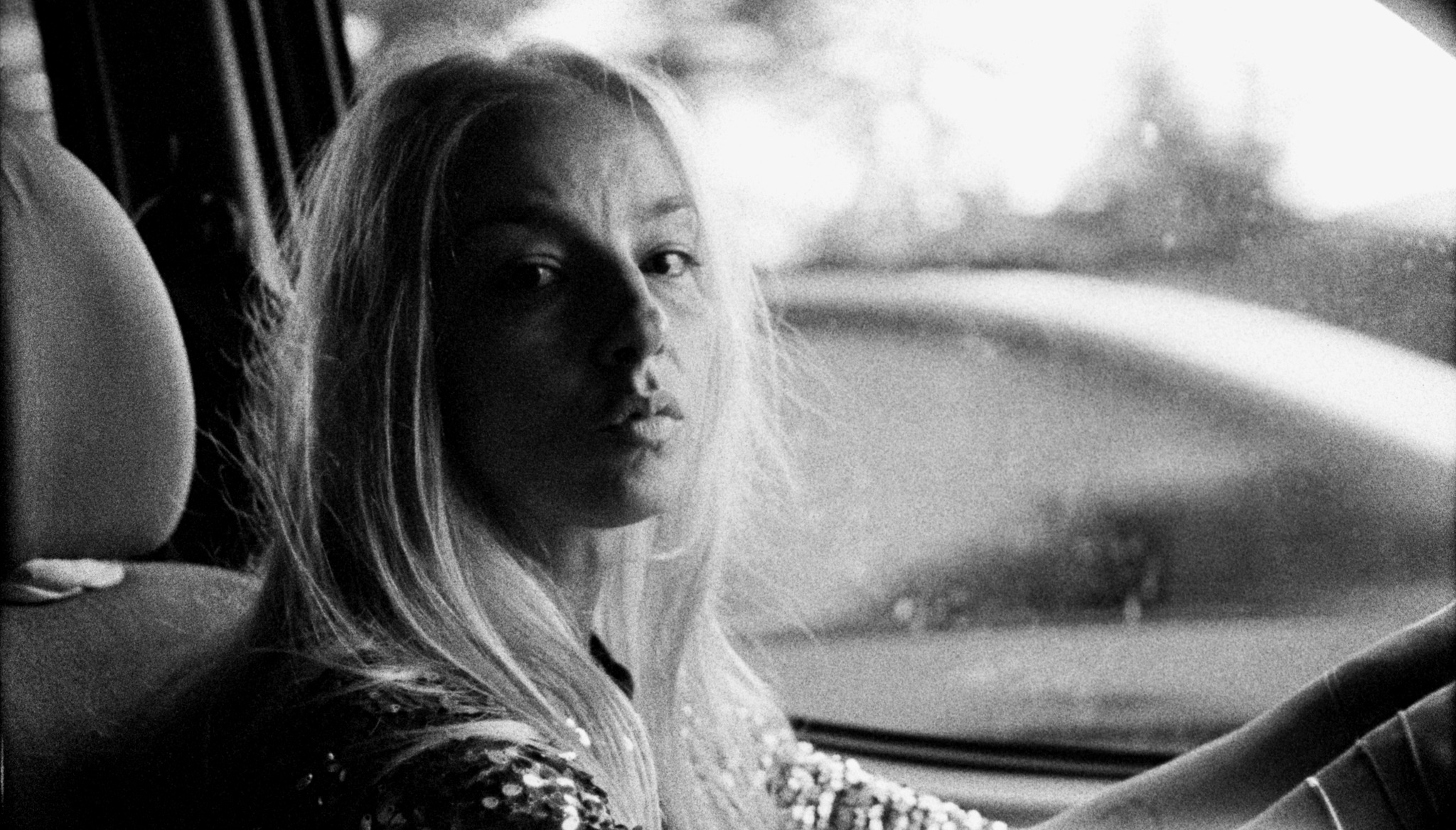
***
Dora Leu
Do Not Expect Too Much from the End of the World (dir. Radu Jude)
Arsenie. An Amazing Afterlife (dir. Alexandru Solomon)
Between Revolutions (dir. Vlad Petri)
Of course, this is a top by a festival goer, there is nothing more to say; I will bear my cross of predictability with dignity. Do Not Expect Too Much from the End of the World stands out, in my opinion (and I have a feeling that this is a somewhat unanimous opinion among the critics here). What struck me about the film was something I realized I had only understood in theory about cinema and reality. The ontological click occurred when I saw the intersection near my place, where I go to the Xerox or to buy socks, expanded on the ‘world’ screen in Locarno. It appears that the ailing Bucharest is now creeping among the urban cinema myths of the world, with Jude as its most current chronicler. I think the film rightfully deserves a leading place in a ranking focused on Romanian cinema in 2023: Do Not Expect… is so anchored in the local only to simultaneously break away from it and function in international terms, in terms of the history of cinema – which it both chews and makes.
Arsenie. An Amazing Afterlife is an admirable study of local mentalities, even if methodologically I don’t know if it’s without fault – I still have reservations, or maybe questions, about the characters’ relationship with the camera. But I always enjoy a film that can get under someone’s skin, and which also admits the psychological, anthropological, and performative complexity of the subject.
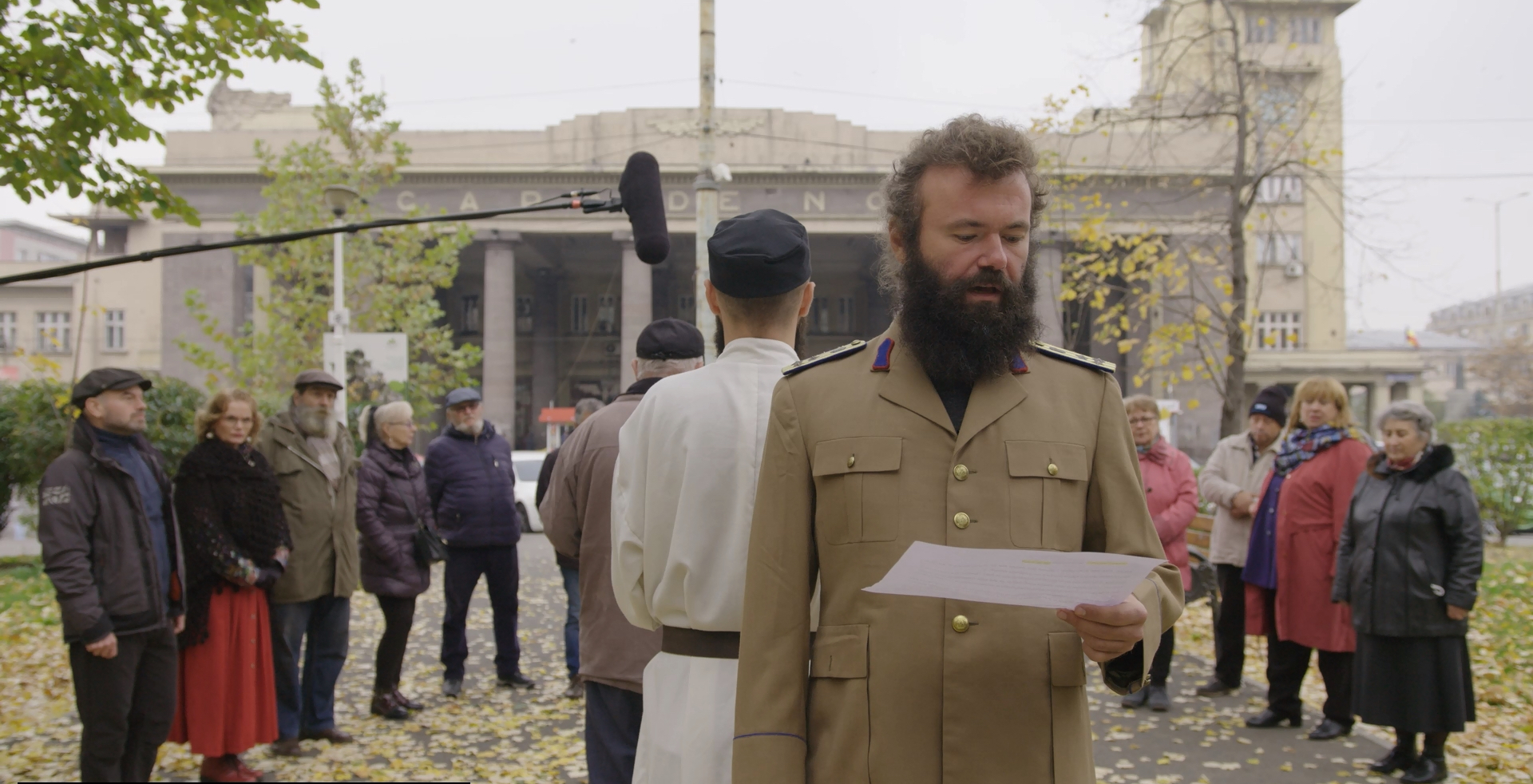
As for Between Revolutions, I appreciated that the archival exercise and historical tableau take Romania out of the Eastern Europe area and connect it to other geographical, affective, historical, and so on, dimensions. The influx of images “from abroad” is very welcome, especially when the Romanian archival film so far has used nothing but ‘our own’ testimonies. Jude and Petri prove that the landscape of montage film is still the most promising one in Romanian cinema, and all three films prove that, at the local level, we still live in a time of documentaries.
What could have made the list is To the North (dir. Mihai Mincan), which, even if I find it a bit clumsy, “a bit too much”, especially in terms of script and dialogue, I see it as a different kind of Romanian cinema, one that falls in with the European one. The cinematography is a welcome aesthetic alternative, and so is the parade of faces very little known to Romanian screens. I would also point out Playback (dir. Iulia Rugină), which is far from making it into the list, but emotionally, I fell for it: I like tapes, I like video, I like these media vestiges of popular culture (there could have been more).
***
Ionuț Mareș
Do Not Expect Too Much from the End of the World (dir. Radu Jude)
Between Revolutions (dir. Vlad Petri)
Nora (dir. Carla Teaha)
By far the best Romanian film released in 2023 was Do Not Expect Too Much from the End of the World, by Radu Jude. An ambitious film that is both funny and unsettling. A memorable performance by Ilinca Manolache, the actress of the year in Romania. Then, I quite liked Vlad Petri’s Between Revolutions, for the way it brings together and showcases such different archival images. I also appreciated Nora, Carla Teaha’s directorial debut, for its assumed simplicity and the way it lets itself be carried by the exuberance of its protagonist.
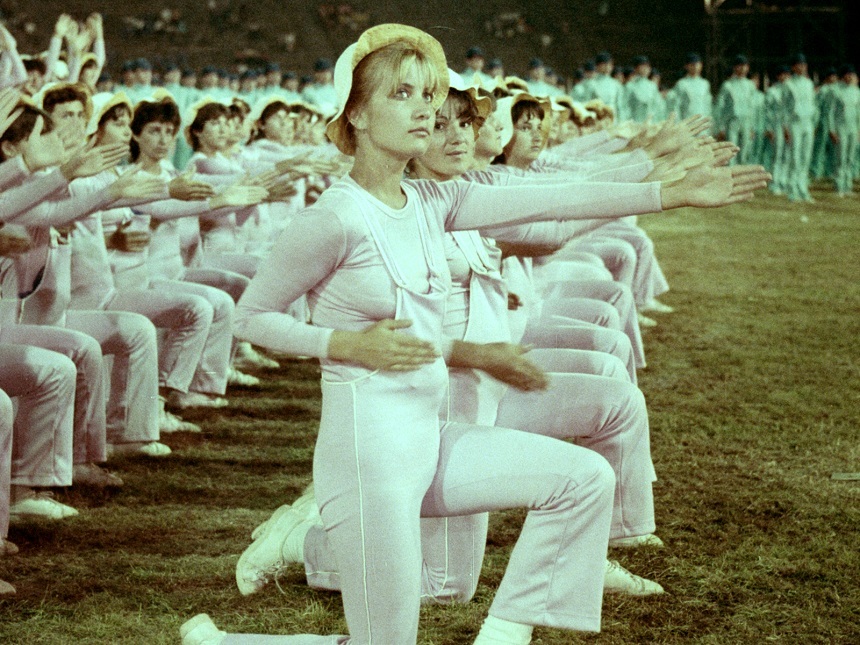
Otherwise, the other Romanian films released this year on the big screens were either “meh, whatever” or at most offered an idea, a character, or a moment worth remembering. I’ll refer to the second category. MMXX, whose formalism seemed pretentious to me, showed that Cristi Puiu is still hard to match in directing actors. Mammalia, by Sebastian Mihăilescu, is worth applauding for the boldness to explore a realm foreign to Romanian cinema (even when the journey fails). Regarding Arsenie. An Amazing Afterlife, I found Alexandru Solomon’s approach to investigating his sensitive subject stimulating. The beginning of Freedom, by Tudor Giurgiu, depicting the chaos of the December 1989 Revolution in Sibiu, fascinated me even on the second viewing. In Day of the Tiger by Andrei Tănase and Taxi Drivers by Bogdan Theodor Olteanu, it was either a character or performance that moved me – shout-out to Cătălina Moga and Victoria Răileanu. Mihai Mincan’s To the North stood out for its cinematography and soundtrack. In 21 Rubies, by Ciprian Mega, I was surprised by the courage to tackle the topic of Church corruption, with a script unfortunately too dense and conventional but with some good intuitions. As for Miami Bici 2, by Jesús del Cerro, there was only one joke that made me laugh: the character played by Codin Maticiuc falls in love, in America, with a stripper who, just like him, is a fan of Trump, so, to impress her, he shows her photos of himself during the Capitol siege, images that we also see and which are like a small Woody Allen-esque gag.
***
Victor Morozov
Warboy (dir. Marian Crișan)
Mammalia (dir. Sebastian Mihăilescu)
To the North (dir. Mihai Mincan)
I have repeatedly expressed my admiration for Radu Jude’s film Do Not Expect Too Much from the End of the World. With all the aesthetic paths it opens so impetuously and connected to the streams of images and ideas of the present, it is a true game-changer – and its place will remain among the most important Romanian films ever made. I felt that it’s not necessarily the place to explicitly mention this title in my personal top 3 because it would be redundant. The film’s cause among critics is won – and sometimes even among older detractors (the first step towards classicization). It’s not whether the film is good that needs to be debated – for those interested in the fate of the audiovisual medium, the question is pointless. But how – through what complexity of the editing gesture, which juxtaposes divergent regimes of visibility until a new one emerges, uniquely its own, born from the confusing interpenetration of the others – this quality is born. And why behind it is, in my opinion, the only Romanian film of the year that remains relevant even beyond the local context. (To answer, we must be willing to experience the sensitive fabric of its images.)
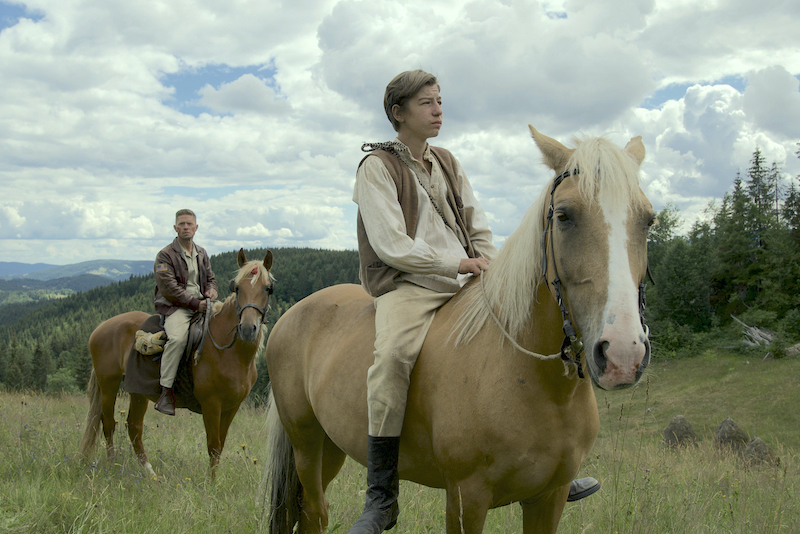
As far as I’m concerned, it is more logical and necessary to propose three titles that have unfortunately passed through theaters without leaving too deep traces, in the indifference of a Romanian audience that is less and less inclined to be curious about what is done in our country.
Warboy is the absolute counterpoint to all the efforts of the domestic industry to be hip: a deliberately out-of-date film, even obsolete, but which displays a clarity of directorial gesture capable of turning cinema into a small continuous marvel.
To the North is the opposite: a co-production with significant means that aspires to internationalize a local case. But here, what is actually found is the limit of the film, an experience too cumbersome for the momentum of freedom that I anticipated. The momentum, however, truly exists: throughout certain scenes, the film turns into a melancholic song dedicated to those swallowed by history.
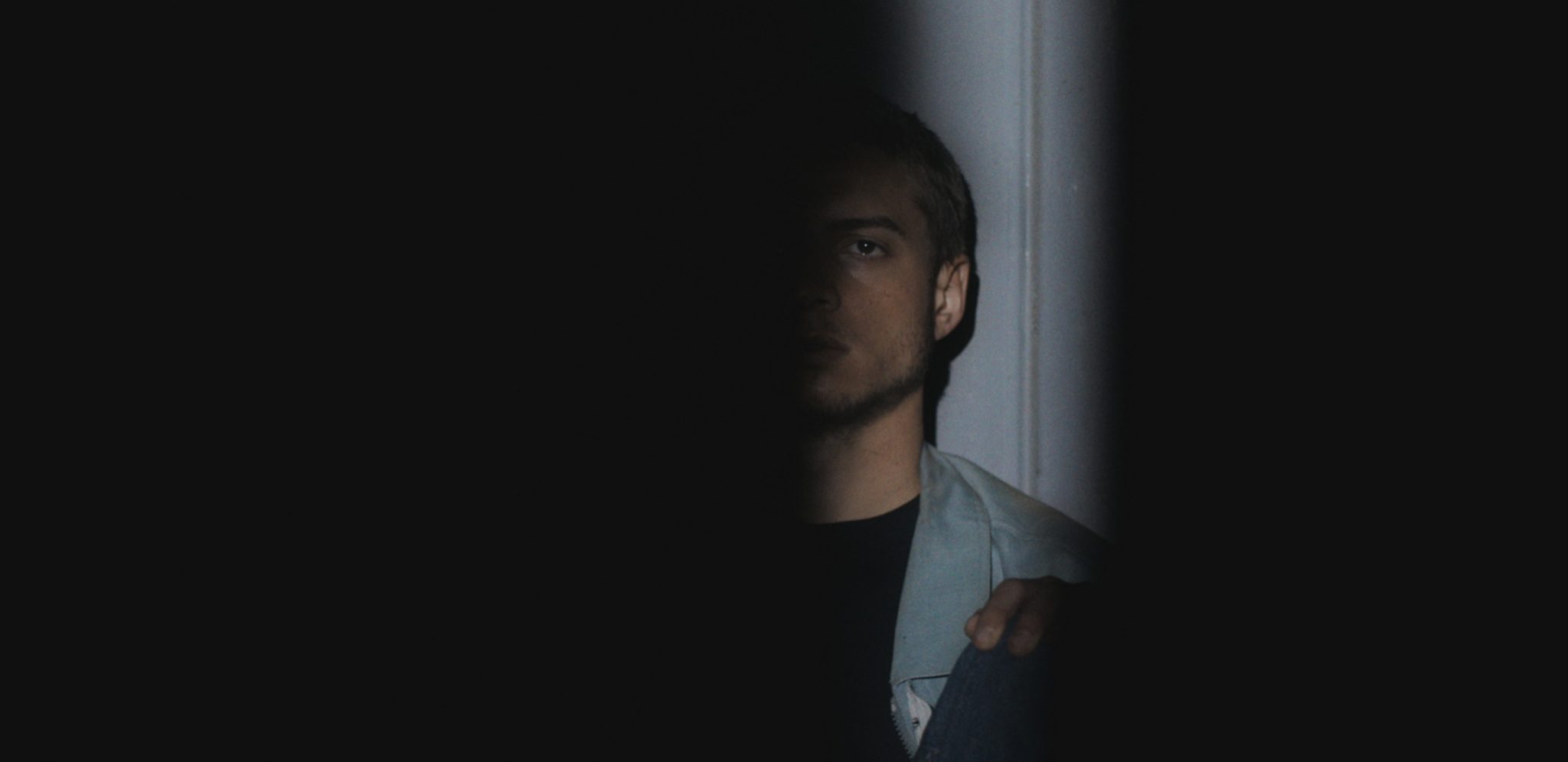
Mammalia is the interesting case of a film that did not turn out as expected, that is, free, flashy, completely immune to matters of cinematic respectability. On the contrary. But that does not cancel the legitimate nature of this directorial project with, I feel, a somewhat longer scope that can cover an entire filmography. Like Mihai Mincan, Sebastian Mihăilescu is part of the (often burdened) group of those who come after. From this generation, especially in their films, we can glimpse the buds of visions that might amaze us in the future.
***
Laura Mușat
Do Not Expect Too Much from the End of the World (dir. Radu Jude)
Between Revolutions (dir. Vlad Petri)
Taxi Drivers (dir. Bogdan Theodor Olteanu) / Freedom (dir. Tudor Giurgiu)
+ Nora (dir. Carla Teaha)
It was a year with highly anticipated films. Most of us knew that we would get to see new works by influential names in the domestic and, in some cases, international industry such as Cristi Puiu, Tudor Giurgiu, Radu Jude, Călin Peter Netzer, and Marian Crișan. Many of them have disappointed. There were more fiction films than documentaries, but the documentaries were far better than the fiction films. The sad news is that we haven’t had many films directed by women, but the good news is that, at least in my opinion, one of them has been the most vibrant film of the year – Nora, which finds its place on my list as a bonus. And speaking of it, my list has a bit of everything – Radu Jude’s latest effort is a delight from start to end (and I’ve never been a big fan of his work) that will please even the most picky of viewers (those who would only reluctantly go to Romanian films). A film that is funny, engaging, ironic, and unsettling.
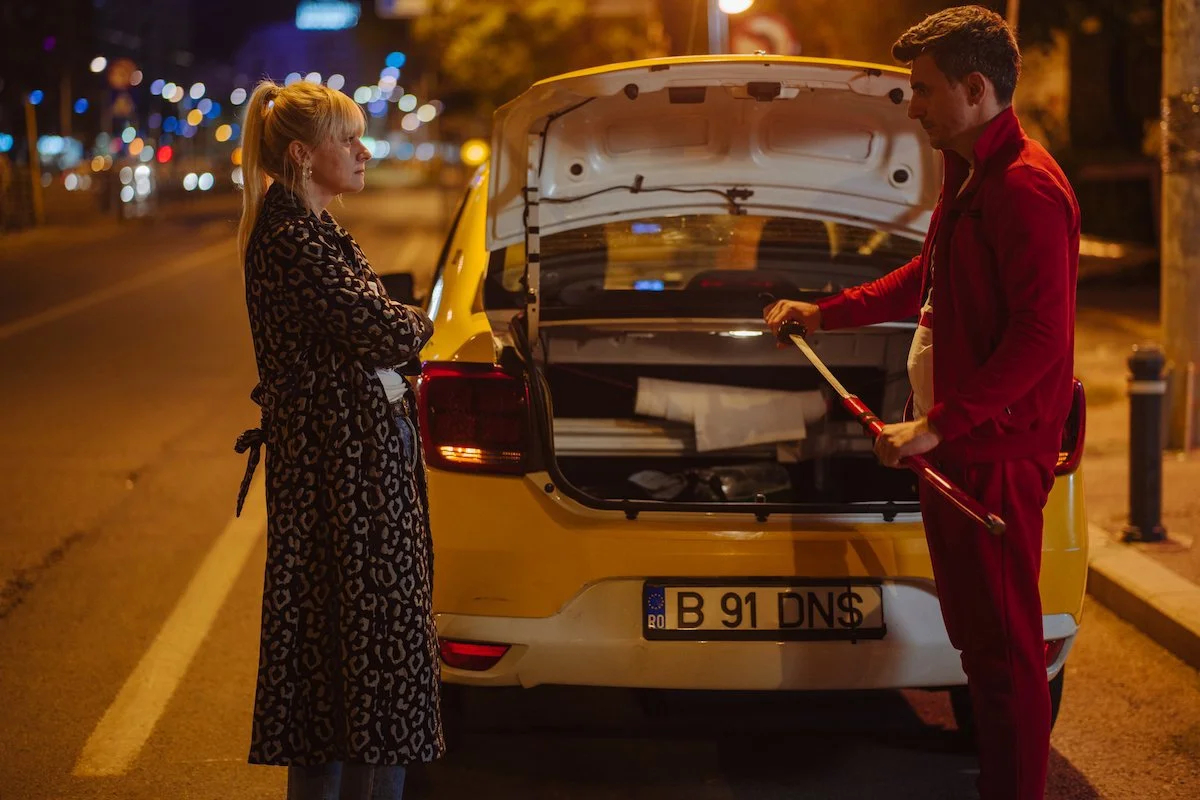
Vlad Petri’s feature, a documentary using only archival footage, is of a sensitivity rarely encountered in Romanian cinema in recent years, largely due to Lavinia Braniște and her letters that I would always read again and again. I applaud Vlad’s courage to embark on such a challenging exercise, which he admirably succeeded in. Finally, the 3rd place is occupied by two titles because both are films intended for a wider audience, and I salute the determination to make films that might be more commercial but just as great: one is very well written (Taxi Drivers) and the other is very well produced and directed (Freedom). In the end, both are delightful films.
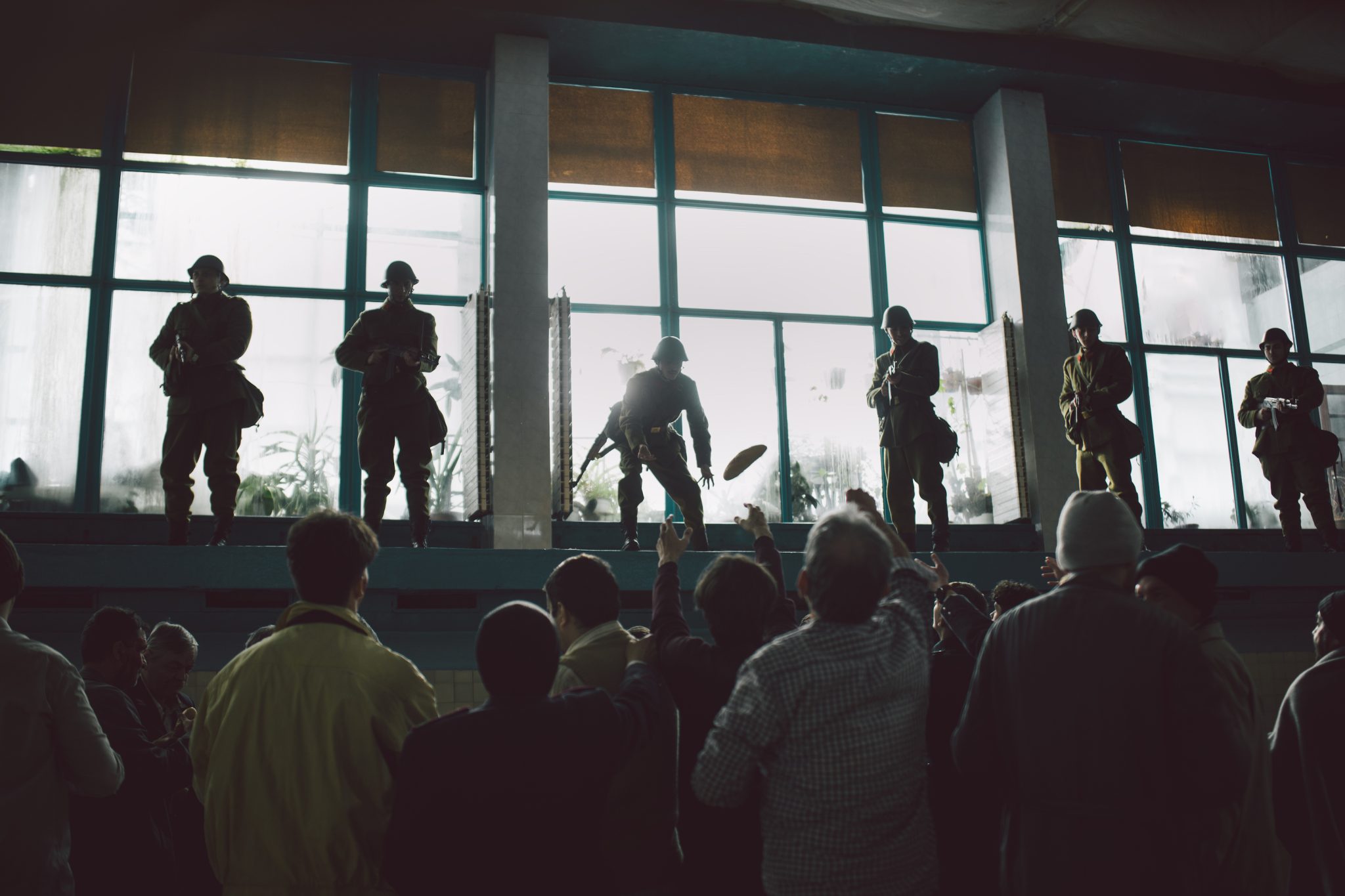
And last but not least, a bonus: Nora, a debut film directed by Carla Teaha, which is by far the most effervescent film of the year, thanks to its main character – poet, prose writer, and translator Nora Iuga. A film that captures Nora’s essence in an authentic and honest way, making her known to a much younger audience (and perhaps unfamiliar with her work). I saw it in a theater full of young people who totally fell in love with Nora after meeting her on the big screen – and ultimately, isn’t that the best part of a film?
***
Ramona Aristide
Do Not Expect Too Much from the End of the World (dir. Radu Jude)
Mammalia (dir. Sebastian Mihăilescu)
Between Revolutions (dir. Vlad Petri)
Mention: Nora (dir. Carla Teaha)
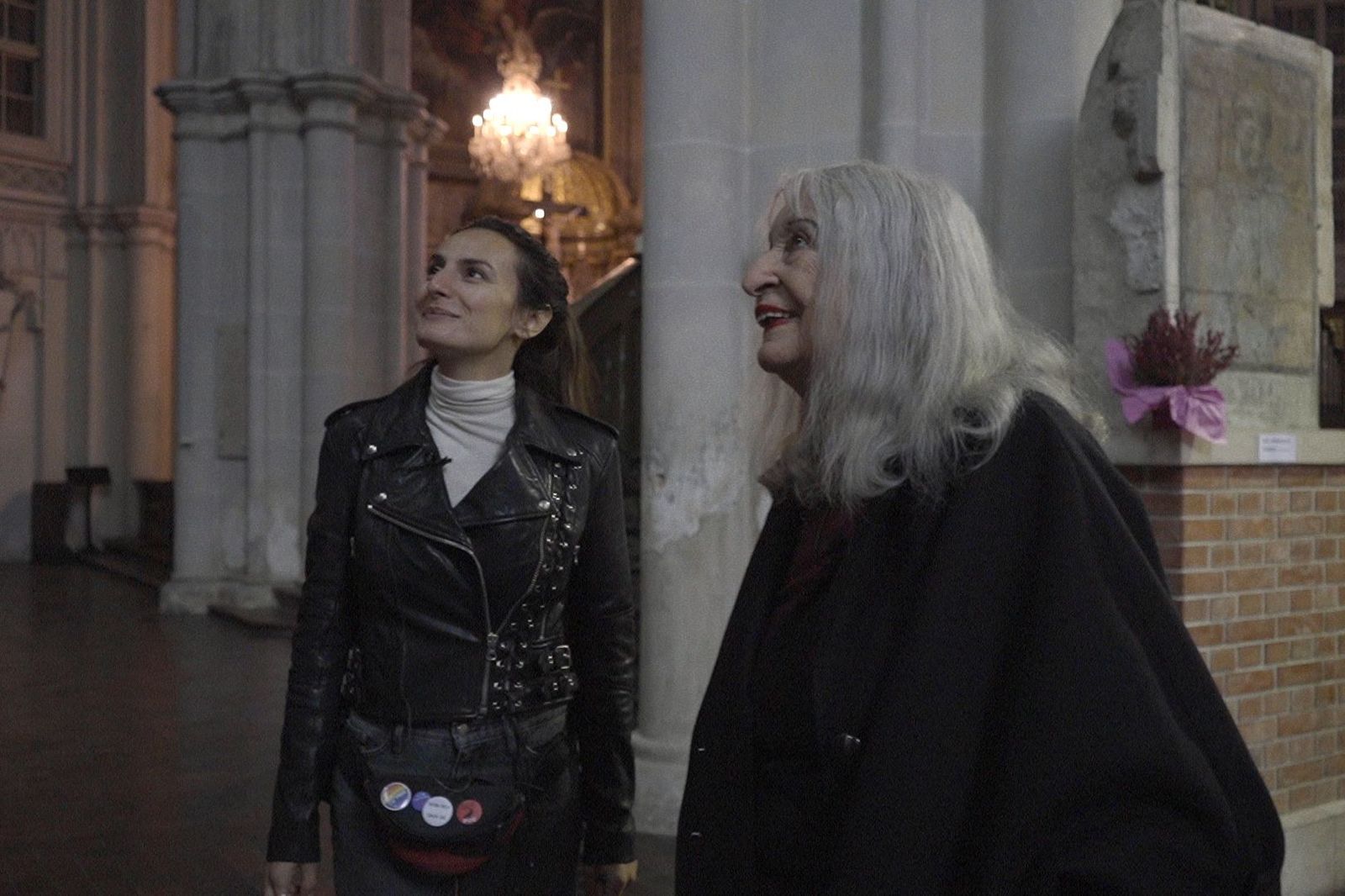
I wasn’t expecting much from Romanian cinema this year, but here’s to the pleasant surprise of being taken off guard. My list consists of films that I found to be the best, the most challenging, or eclectic in narrative and visual terms.
The film that irrevocably captivated me and made me experience an unexpected spectrum of emotions while watching it is the all-too-relevant and almost canonical Do Not Expect Too Much from the End of the World, especially since I’ve never been a fan of Jude’s films, I must confess.
Mammalia surprised me as a film emerged from a completely different geographical or cinematic landscape: dreamlike, dark images captured in slow-paced shots (the credit goes to director of photography Barbu Bălășoiu), mysterious characters portrayed in a surrealist vein. I wished for the screenplay to catch up with the film’s aesthetics, not occasionally slipping into an area of self-sufficiency, such as in the ritualistic scenes. I hope this sphere of peculiarity and eccentricity will be further exploited by Mihăilescu in the future; it is at least promising.
Between Revolutions brings a candid breath to Romanian cinema, intersecting two worlds – Romania and Iran – in a sensibly constructed collage, which at the same time complements the poor local range of montage films. I applaud the cinematic gesture, but I confess that the correspondence between the two long-distance friends did not keep me engaged.
Special Mention: Nora – my vote goes to Nora Iuga, who has been by far the most seductive presence among the titles released this year.
***
Georgiana Mușat
Do Not Expect Too Much from the End of the World (dir. Radu Jude)
Arsenie. An Amazing Afterlife (dir. Alexandru Solomon)
Nora (dir. Carla Teaha) / Mammalia (dir. Sebastian Mihăilescu)
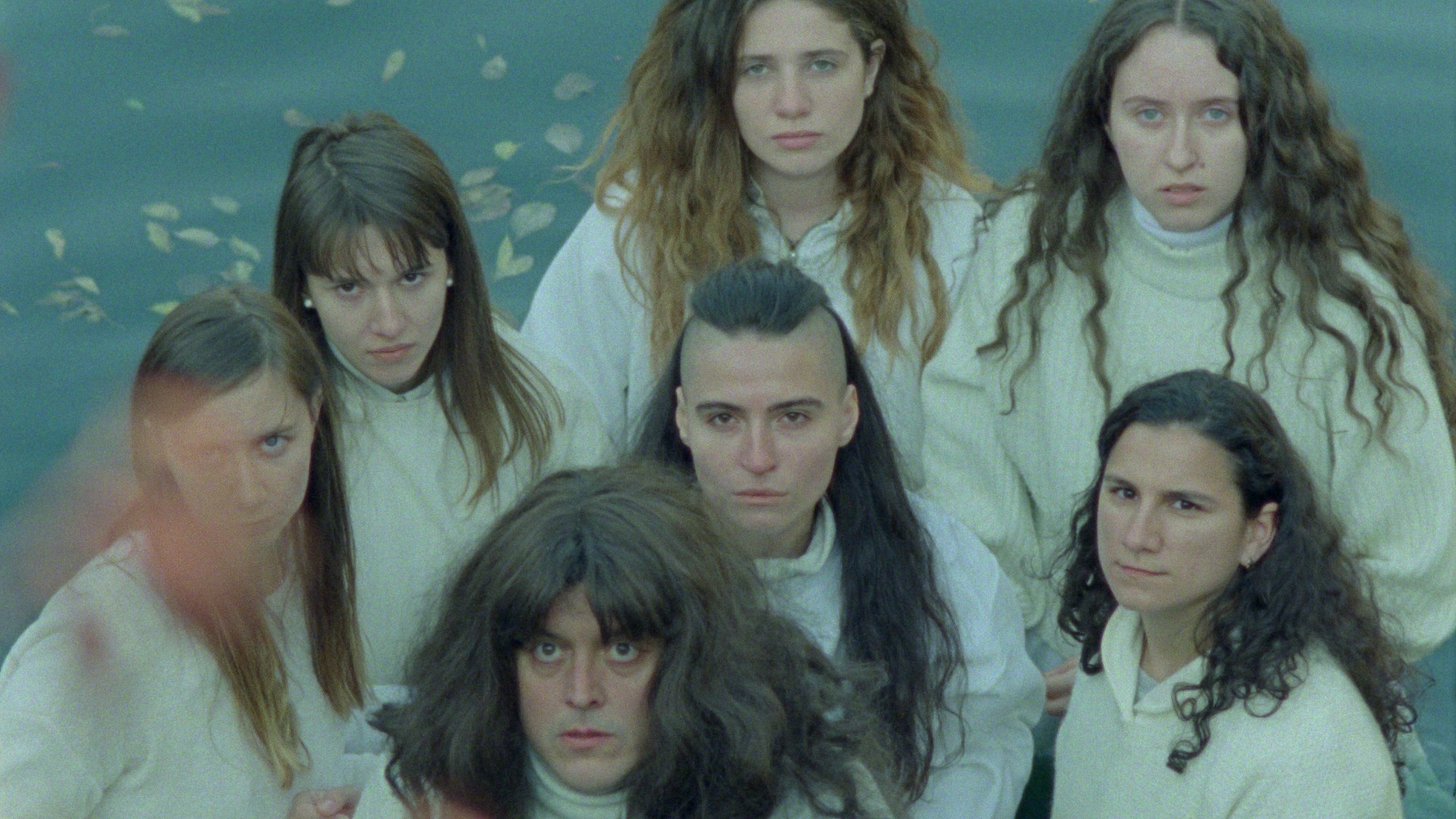
Most often, when it comes to favorites, I tend to gravitate towards the imperfect, abrasive, and dark ones; towards scripts with visible flaws, overflow, and lack of boundaries. And then, when I get attached to films, I project onto them things that aren’t there, or I enhance them as time passes, magnify them like a magnifying glass, until, months after viewing, I remain with that obsessive element, around which the film also hovers. That’s what happened with Jude’s new film. The first was the character of Angela, who is a disco ball in person, with colored sequins in broad daylight, always on the edge of the abyss, always on the verge of an accident. This intermittent existence, taking place almost exclusively in the car, behind the wheel, while so many jackals grab her from the window, seemed to me the perfect mold of the world we live in. The second was the wonderful impetus to build this adjacent narrative, a fiction en abyme about the unlikely meeting between the two Angelas – the one in Bratu’s film and the one in Jude’s film – over coffee, talking about men and taxi driving.
I wouldn’t call Sebastian Mihăilescu’s film insolent or cheeky (certainly not in the way I would describe Jude’s film), but Mammalia has a touch of midnight movie with a scent of Ari Aster (the film’s prologue, with synchronized moans, is evidently Midsommar-inspired, as well as everything related to the sect the protagonist enters), which is clearly an unexplored ground in contemporary Romanian cinema. The film does not hold as a whole, but I do remain with some images: Claudiu Mitcu’s portraits hanging on the wall, solemnly cleaned by one of the characters; a wig fitting among men; someone dragging a human skeleton down the stairs, bones still coming out of it; Istvan Teglas’ character pretending to be a shirt on a hanger. There would be more, but I would steal from the charm of this film, which, using the tools of experimental film, performs some sketches, some antics, some parodies.
I really liked Arsenie. An Amazing Afterlife, it reminded me in a way of Salaam Cinema (dir. Mohsen Makhmalbaf) – I found it very appropriate as a performative documentary and excellently dosed in terms of objectivity of the discourse, despite Solomon himself admitting to starting with some prejudices.
Last but not least, I cannot overlook one of the most vibrant films of this year – Nora, about this literary personality, half UFO, half woman, for whom poetry is the only possible nourishment (in the film, Nora Iuga is graceful, delicate, capricious, childish, and distinguished, both in her moments of wandering and in those of histrionics).
***
Anca Vancu
Do Not Expect Too Much from the End of the World (dir. Radu Jude)
Восьмое июля, MMXX (dir. Cristi Puiu)
Between Revolutions (dir. Vlad Petri)
A footnote as a foreword: Far be it from me to name the “best films” of the year– I have neither the critical apparatus of my well-trained colleagues nor have I abided by any methodology based on criteria related to stylistic coherence or other formal criteria. I am simply engaging in an exercise of admiration for those films that deeply moved me, made me ask myself questions, and taught me something new about this big and scary world.
I have only one thing to add to everything my colleagues have written above (and emphasize) about this game-changing film by Radu Jude: a big congrats for its festival run and the echoes it generated outside cinemas, for the smartest and bravest promotion I’ve seen in many years and which I hope will inspire others. Ilinca Manolache and the team have innovated and raised the bar significantly from this perspective.
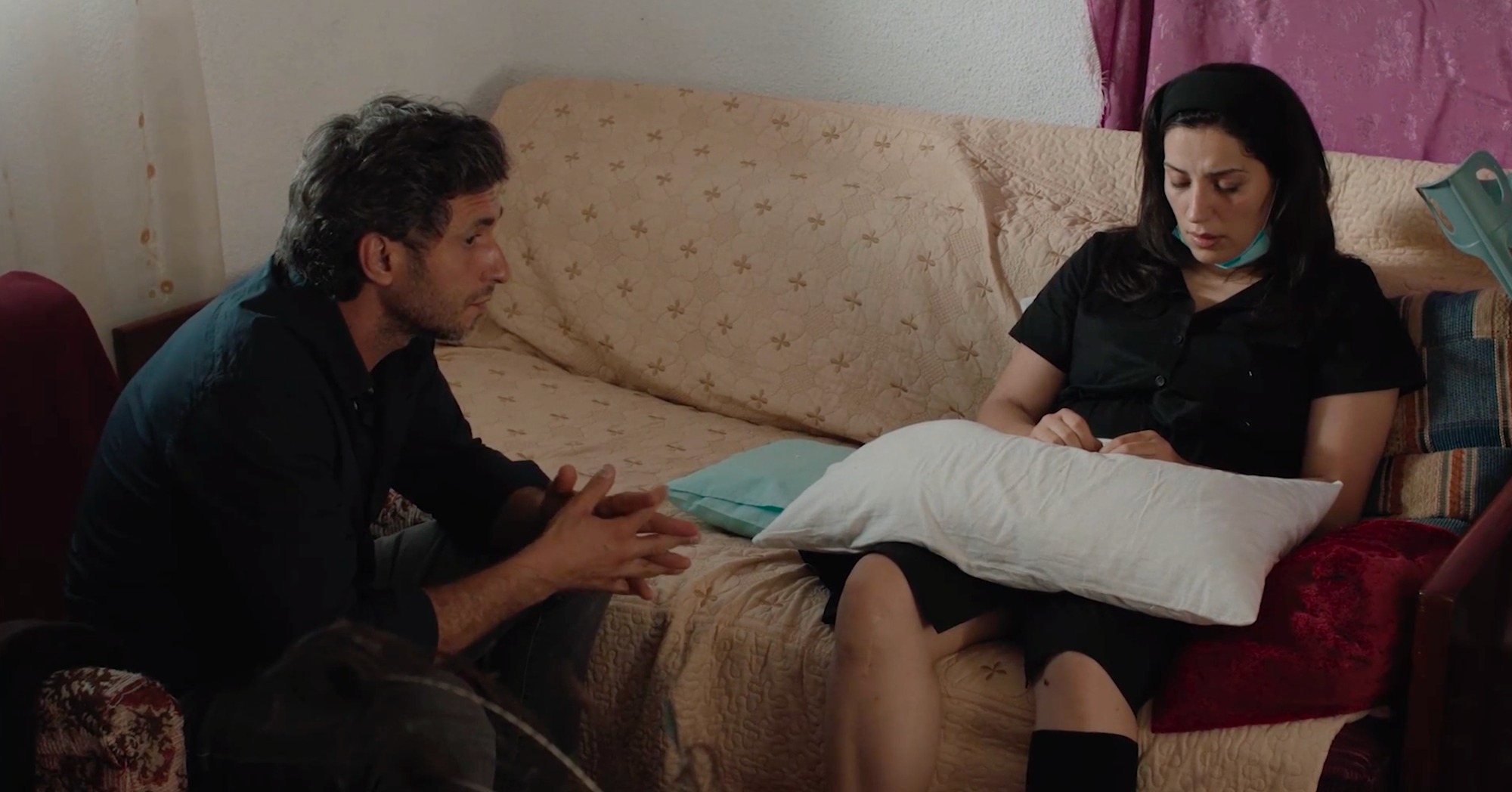
It might be unfair to not review the whole film and focus only on its last part, in this case, MMXX – about which I have rather mixed feelings – but I cannot overlook this episode, among the most powerful films seen this year. I was struck by the list of names with which Consuelo (Adelaida Perjoiu) breaks the silence in the room and turns the dialogue between her and the two policemen (Dragoș Bucur and Dorian Boguță) into a story that leaves you speechless. And Adelaida’s performance, keeping her eyes down most of the time, I find it very impressive (a part she mentioned in a Q&A that she accepted on a Wednesday night without knowing what it was about, “discussed it” for two days on the phone with director Cristi Puiu, and on the third day, she was on the set, shooting). I fell into the amateur’s trap and played the detective trying to find all sorts of answers in the clues in the film: in the verses of Nichita Stănescu, in how the events we see/hear are connected (the funeral, the suicide, the interrogation), in the meaning of the title – written in Cyrillic, it’s a date, July 8, which could be the Feast Day of the Holy Martyr Procopius, as well as the National Family, Love and Loyalty Day in Russia, but it could very well be just an ordinary day in the calendar. There is something challenging, frustrating, and at the same time fascinating to watch and decipher in this film, whose beauty, to paraphrase from another of his films, may lie precisely in this, in being amazed and not having answers to all questions.
I could have watched so many more captivating archive images – from the protests of the Iranian Revolution to the images of our communist-era stadiums with those superb synchronized shots among fluttering handkerchiefs. I liked how the images communicate and build a story in the film that “keeps you engaged”, more than the dialogue between Zahra and Maria, whose friendship seems strong and important, but which I, personally, didn’t feel pulsating from their correspondence. On another note, a frivolous curiosity: I’ve been following the fulminant festival run the film has had/is having, and, along with it, the presence of director Vlad Petri, so I’m quite curious about what his map looks like in kilometers this year and the journey of this Romanian gem in the world.
Special Mention: I’m glad that we will have Nora (dir. Carla Teaha), a documentary you feel like revisiting whenever you go through a rough patch. A film that rests on the shoulders of its protagonist and with which the director doesn’t take many risks (there are no uncomfortable questions, and I would have been curious to see more of the “shadows” of the writer), but it certainly makes you fell in love with Nora Iuga, this “little girl with a thousand wrinkles” who seems to take you by the hand and show you how to live your life with gusto.
An article written by the magazine's team
